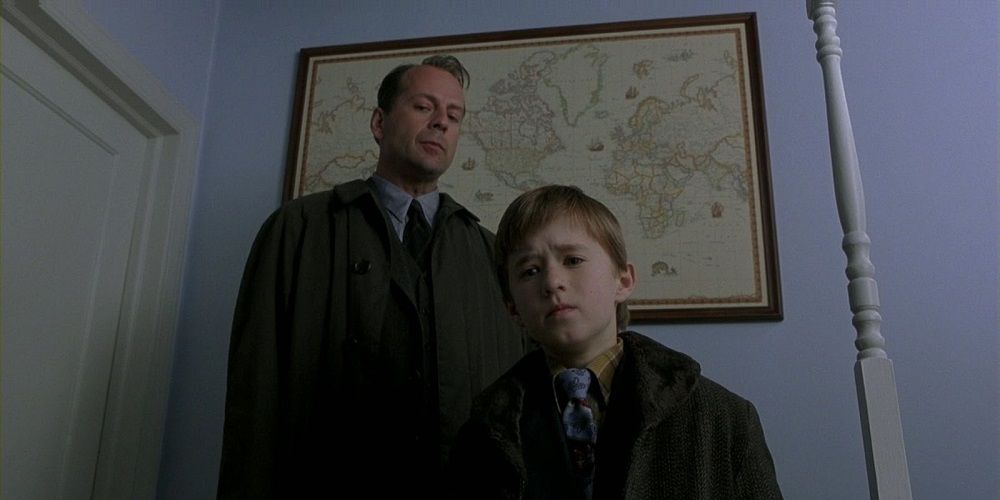Stephen King's Later appears to have the same basic premise as M. Night Shyamalan's iconic paranormal thriller, The Sixth Sense. In both stories, a young man has the unique ability to see and communicate with the dead. However, Stephen King’s 2021 book Later takes this trope of a child being able to see dead people and turns it into a fresh new story for modern audiences.
The Sixth Sense follows Cole Sear, a troubled young boy who confides in child psychologist, Malcolm Crowe, that he can "see dead people." Similarly, Later follows the young Jamie Conklin through his life from ages six to fifteen as he recounts specific memories when his ability to see the dead impacted his life.
While the basic power is the same — the ability to see and communicate with the dead — The Sixth Sense presents the power as a torturous ability that haunts the main character, taking over his whole life as he has to help the dead move on or be forever haunted by them. Later, on the other hand, takes this power and turns it more into a side aspect of who the character is, using it to fuel a coming of age story and crime drama.
In the M. Night Shyamalan movie, Cole’s pervasive ability to see dead people is disruptive and traumatizing. The spirits follow him through every moment of every day, looking for his assistance. The ghosts he sees have specific unfinished business — these entities are often horrific in appearance, haunting the poor child not because he deserves it, but because that's the only option. Cole's "gift" is beneficial to the spirits he assists, but takes a great toll on the young man's emotional state. Conversely, in Later, Jamie’s ability to see dead people is really presented as more of a quirk, one aspect of his personality that is no more important than anything else about him. For the most part, he's not being haunted; rather, he sees the spirit of a person in limbo between this world and whatever comes next. They don’t have any pressing needs, they’re simply waiting.
Overall, the tone of both stories is quite different, and this is echoed by the protagonists’ differing attitudes towards seeing the dead. The Sixth Sense is a horror-thriller story, scaring the audience and keeping them in suspense, while Later is more of a crime novel, ultimately reading more like a contemporary story with supernatural elements. In The Sixth Sense, Cole's gift is a rhetorical device used for jump scares, making the tone much darker; in Later, Jamie’s power is presented as a unique ability he has that lead (living) people to take advantage of him. Both stories are dark, but in very different ways. That being said, both Later and The Sixth Sense are good stories — they’re just very different, despite having a similar premise.


